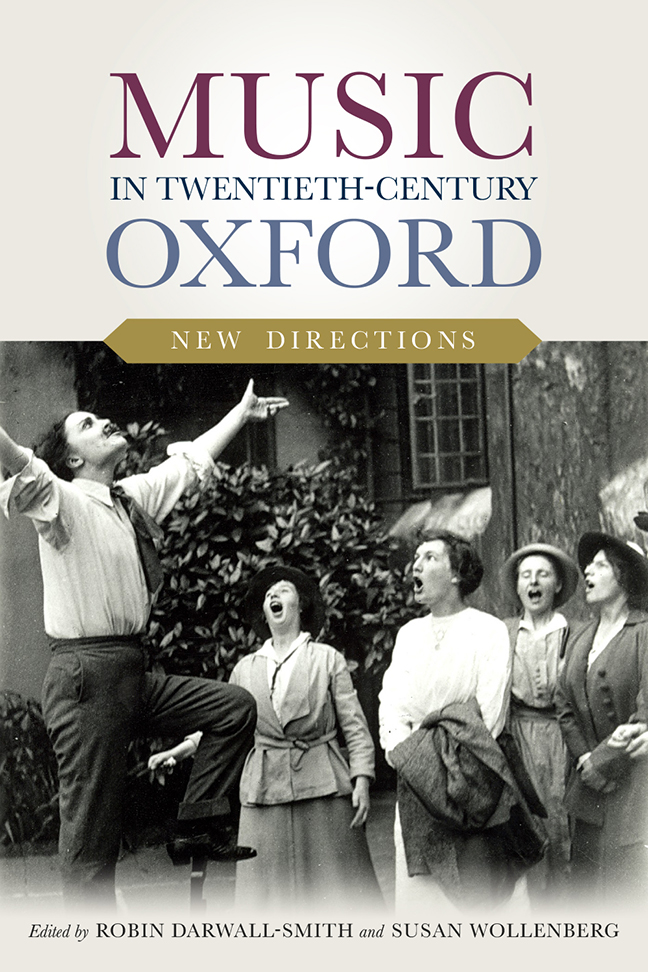4 - Music in the City Churches
Published online by Cambridge University Press: 09 January 2024
Summary
The course of the twentieth century saw radical change in the music of Oxford's churches, as elsewhere in the country. Liturgical developments, depopulation of the city centre, decline in religious belief, and greater choice of leisure activities are just some of the contributing factors. Compared with cathedrals and other choral foundations, where the choir and its music are a permanent, statutory part of the institution, music at parish level has always proved more fragile in nature. Oxford's churches demonstrate that the fortunes of choirs could vary wildly within a short time, and their very existence be threatened. A change of incumbent or organist might completely transform a situation for better or worse, while the relationship between choir and congregation was frequently a cause of tension.
Sources of information for the first half of the century are unsurprisingly sparse. Items such as choir registers or old music books are rare survivals. A fair number of instructive photographs, however, exist, partly in the local press. Only one church, St Margaret's in North Oxford, has a published history of its music, which offers a fascinating survey of the whole period, with all its ups and downs. Church records provide one essential resource, and minutes of both the Annual Parochial Meeting and the Parochial Church Council (PCC) contain occasional references to music. This may be a note of thanks to the choir and organist for their good work, although mention more commonly occurs when there is some change of personnel or a problem with the music. What is most difficult and usually impossible to establish for this period is the weekly ‘bread and butter’ activity: the extent of the role of music within services, the method of chanting, or the frequency of anthems and other choir music. For the second half of the musicians, sometimes going back to mid-century, provide invaluable additional evidence, and this chapter owes much to their contributions. Although the music in Anglican churches is a primary concern here, that of the Nonconformists, who were particularly active before World War II, and of the Roman Catholics, also calls for consideration, as does the state and fate of the city's many organs.
- Type
- Chapter
- Information
- Music in Twentieth-Century OxfordNew Directions, pp. 54 - 72Publisher: Boydell & BrewerPrint publication year: 2023



